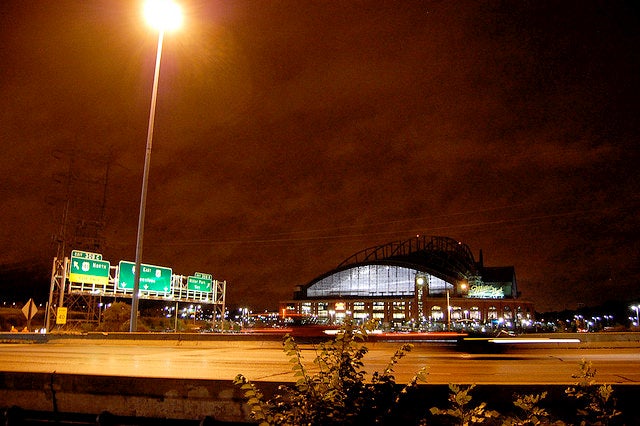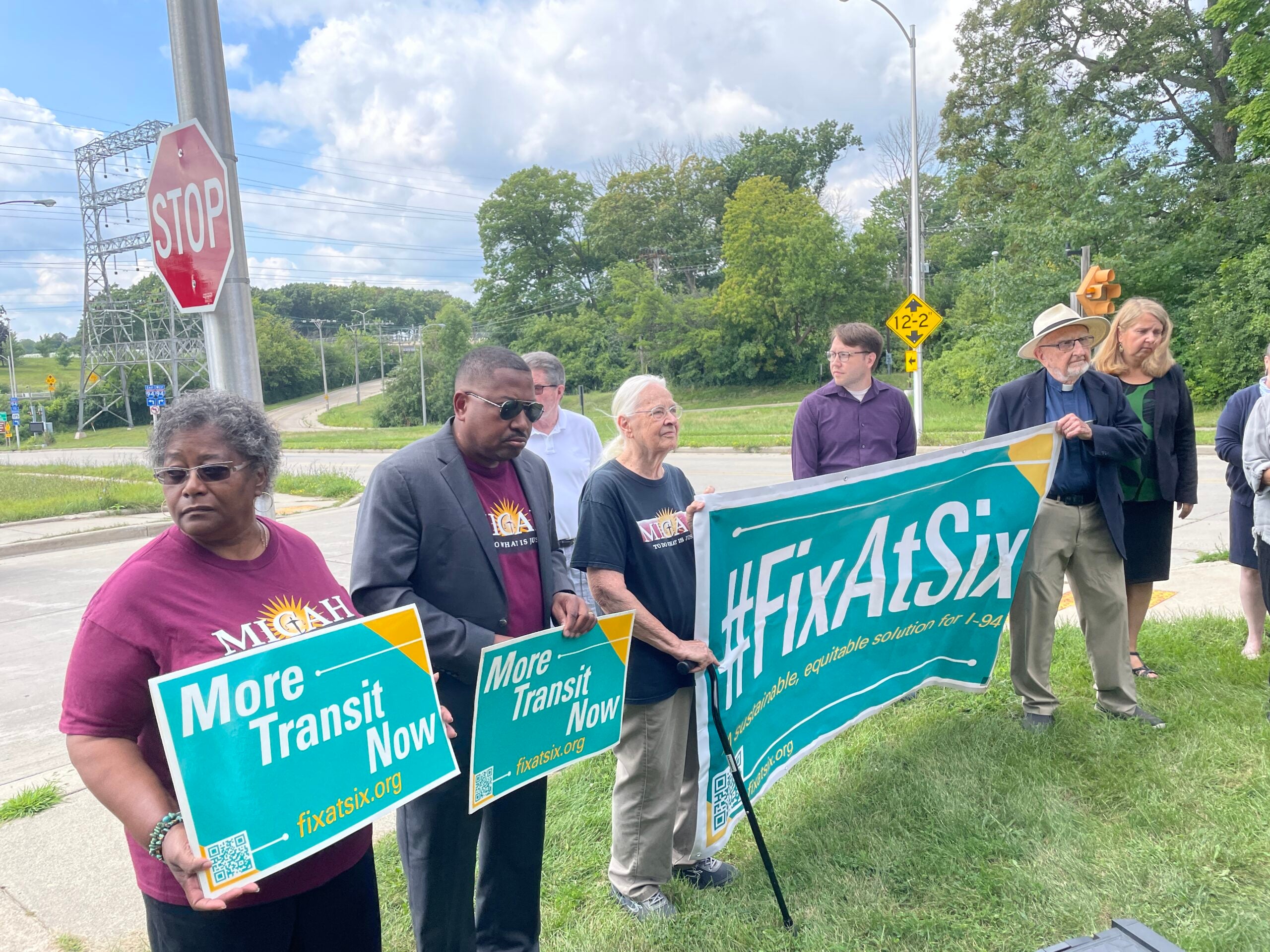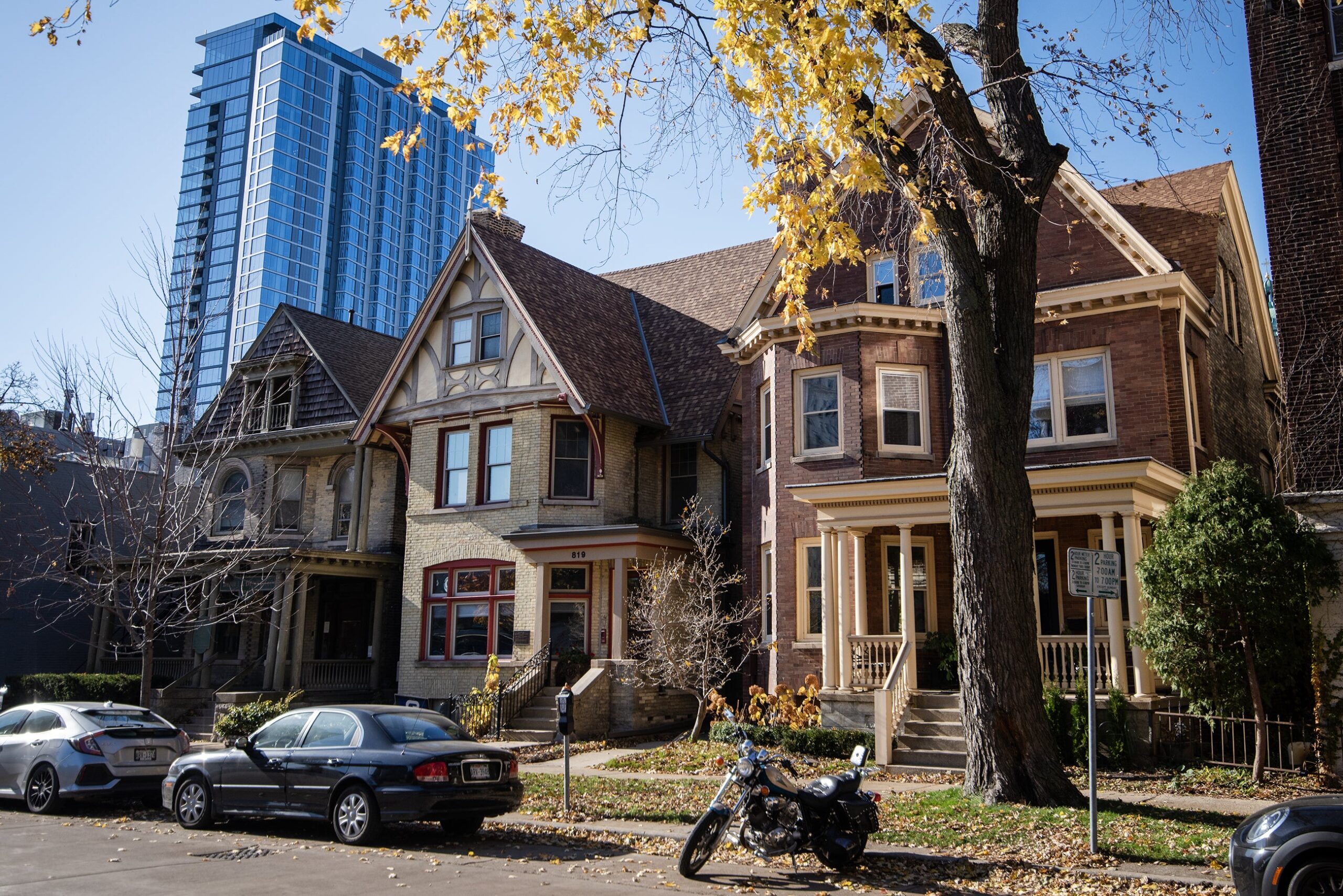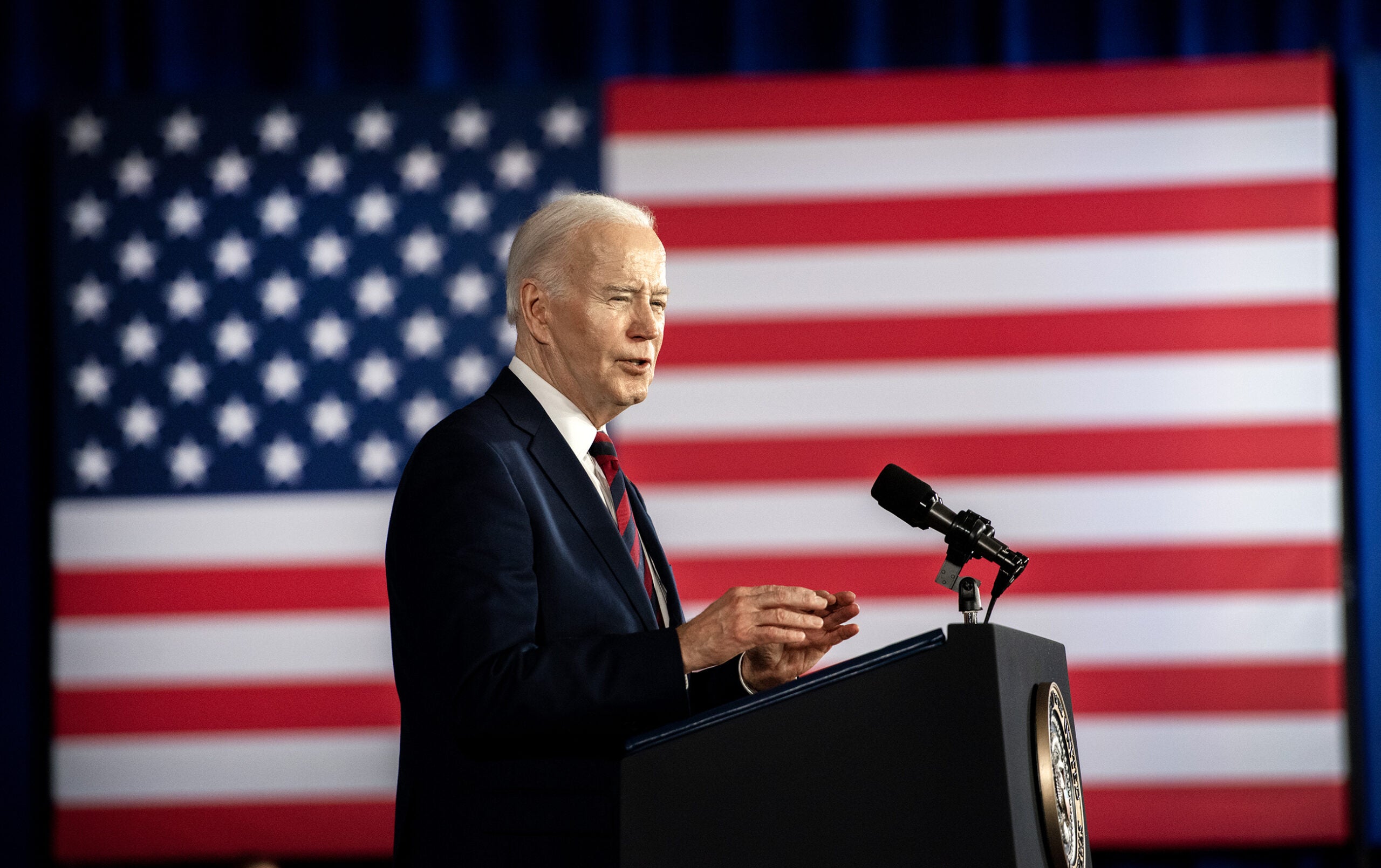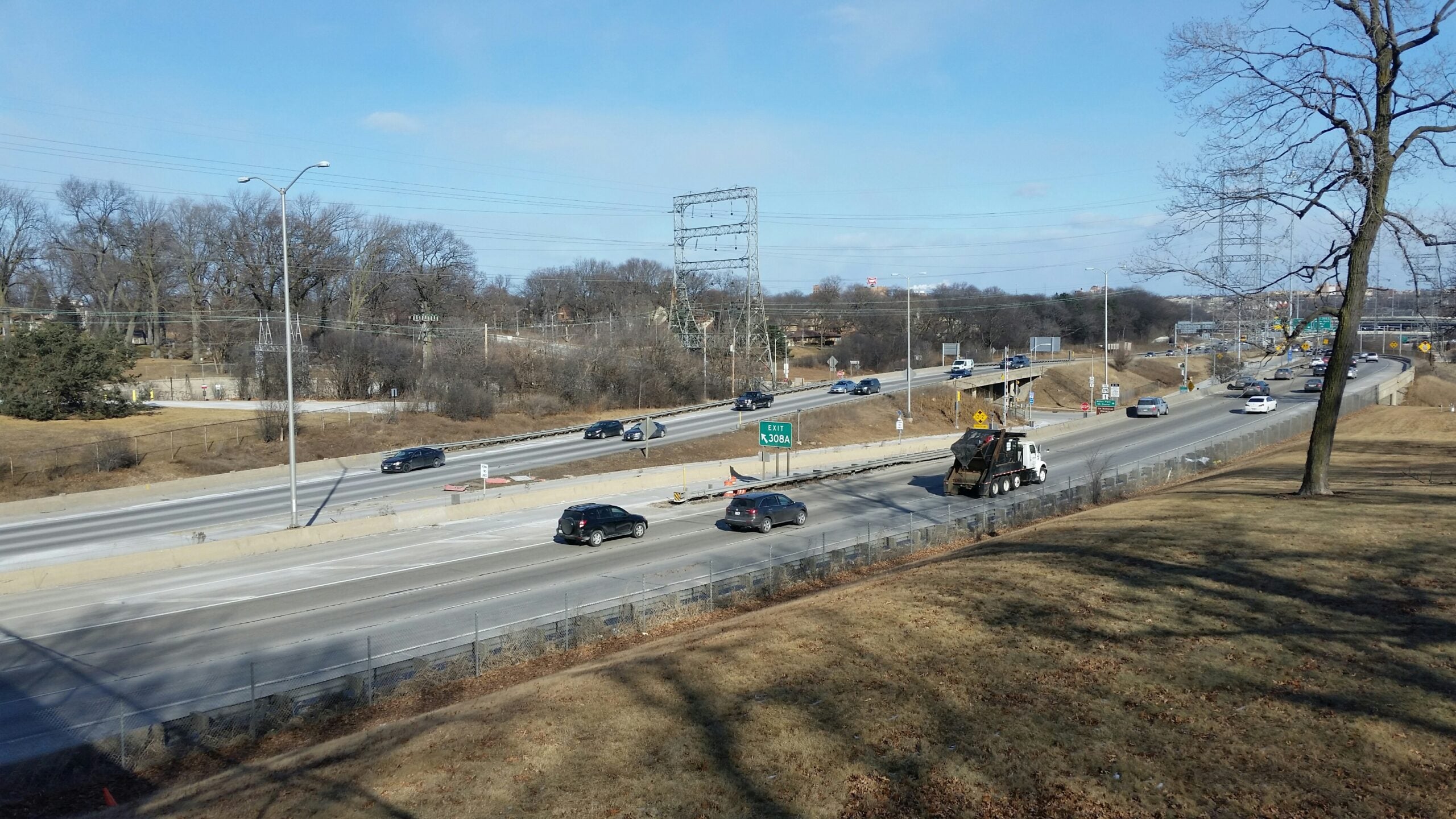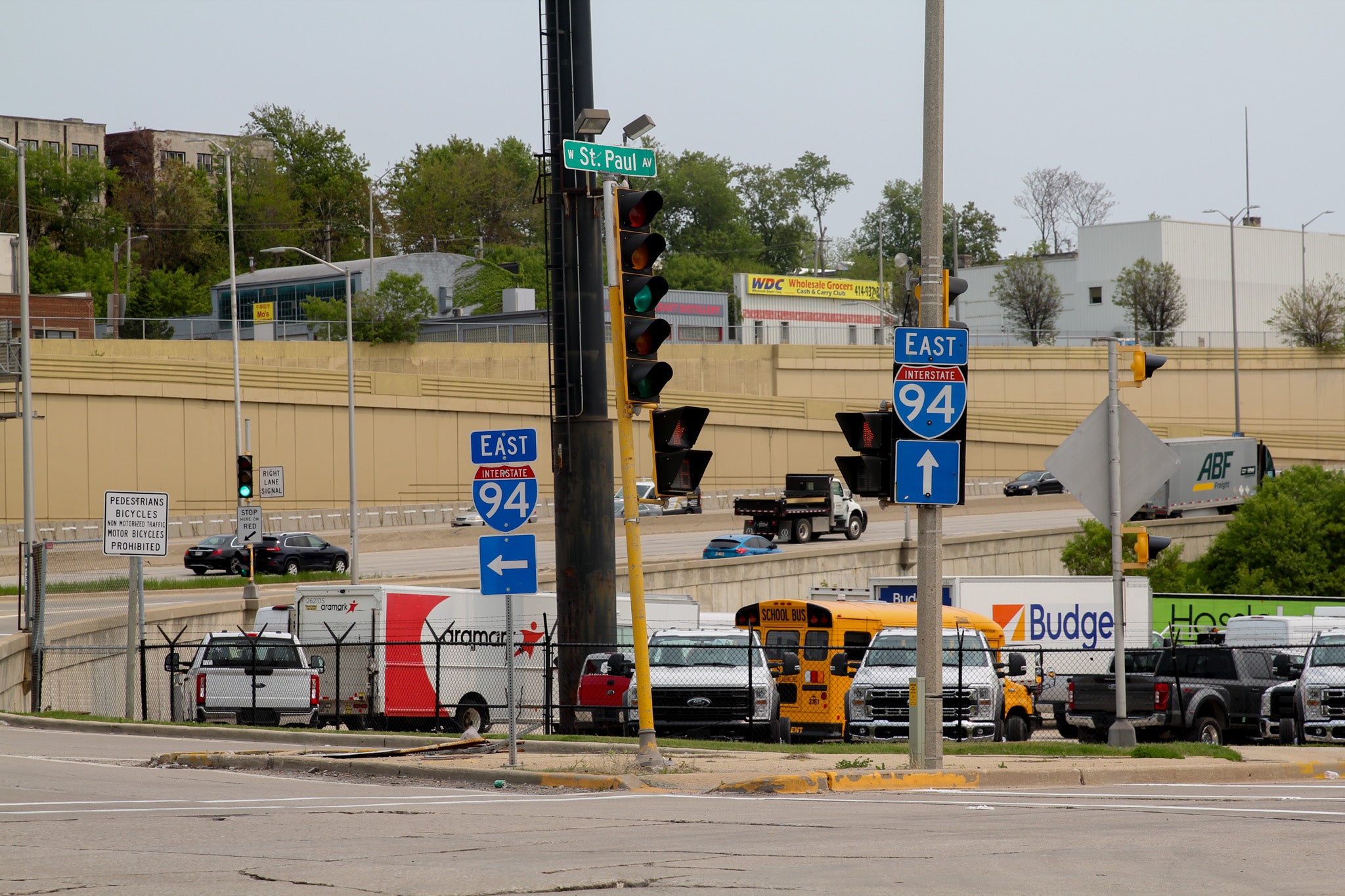The state Transportation Department is considering a $1 billion freeway project that could include the first double-decked section of interstate in Wisconsin — an idea drawing opposition from some who say the Walker administration is too connected to concrete, and not enough to mass transit.
The project would reconstruct a busy 3.5-mile stretch of Interstate 94 on Milwaukee’s west side — from downtown, past Miller Park and on to the Zoo Interchange.
Ruth Shank lives just a few blocks from the freeway. When she hears the roar of Interstate 94, she says she hears noise that could potentially be harmful: “Noise from traffic has been known to cause major physical illnesses,” she said.
Stay informed on the latest news
Sign up for WPR’s email newsletter.
Shank is an outreach specialist at University of Wisconsin-Milwaukee and the Children’s Environmental Health Sciences Core Center. Shank’s supervisor, Jeanne Hewitt, is also a nurse. Hewitt said that if the Department of Transportation expands Interstate 94, it would lead to more traffic, more noise, more dirty water running off into a nearby river, and more air pollution blowing into nearby neighborhoods.
Hewitt said many vulnerable children live in those homes.
“Pound for pound they breathe more air, drink more water, and so forth — so they take into their bodies more pollutants than adults do,” said Hewitt.
The DOT’s draft environmental impact statement for the project considers two options. One is to use almost all of the shoulder of the road, narrow the lanes a little and create a fourth lane in each direction. The other option is to add a second deck of four lanes in each direction.
The DOT said that a double-decking project is not a sure thing, but the agency appears to want to do something more than just repave the section of roadway and make minor safety improvements.
State Transportation Secretary Mark Gottlieb spoke Wednesday to the Metro Milwaukee Association of Commerce. Gottlieb — who has been trying to deflect criticism of a proposed state transportation budget that would raise taxes and fees $750 million and start to put more money into the Milwaukee I-94 project — said that the great majority of the DOT budget goes toward maintaining roads. He said that capacity nevertheless needs to be expanded in some areas like I-94.
“There are a number of freeway segments, including the ones that we are studying right now in the Milwaukee area, that have very poor travel time reliability,” said Gottlieb.
At a public hearing Wednesday night on the 1-94 project, the DOT’s efforts to improve travel times was met with approval from suburban Milwaukee resident Jim Michaletz, who commutes to and from downtown.
“We need a minimum of four lanes — five lanes would be preferable — especially during Brewer games,” said Michaletz.
Overall, however, more critics than supporters of the DOT testified at the hearing. Steve Hiniker of 1,000 Friends of Wisconsin said the DOT in Milwaukee seems to be taking a much less open approach than the agency did when discussing a beltline reconstruction in Madison.
“As far as I can see here — and I’ve been involved in the I-94 corridor since 1990 — we have had stonewalling on data and on participation, and that is why people are unhappy,” said Hiniker.
Organizations like the Wisconsin Public Interest Research Group and the Cleaner Milwaukee Coalition are urging the DOT to expand mass transit options in the area and stick to the much cheaper option of just repaving I-94.
Wisconsin Public Radio, © Copyright 2025, Board of Regents of the University of Wisconsin System and Wisconsin Educational Communications Board.

